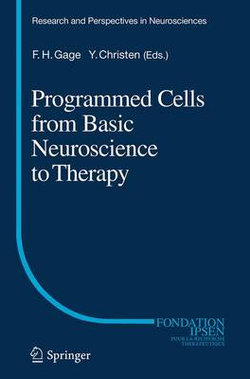The recent advances in Programming Somatic Cell (PSC) including induced Pluripotent Stem Cells (iPS) and Induced Neuronal phenotypes (iN), has changed our experimental landscape and opened new possibilities. The advances in PSC have provided an important tool for the study of human neuronal function as well as neurodegenerative and neurodevelopmental diseases in live human neurons in a controlled environment. For example, reprogramming cells from patients with neurological diseases allows the study of molecular pathways particular to specific subtypes of neurons such as dopaminergic neurons in Parkinson's Disease, Motor neurons for Amyolateral Sclerosis or myelin for Multiple Sclerosis. Detecting disease-specific molecular signatures in live human brain cells, opens possibilities for early intervention therapies and new diagnostic tools. Importantly, once the neurological neural phenotype is detected in vitro, the so-called "disease-in-a-dish" approach allows for the screening of drugs that can ameliorate the disease-specific phenotype. New therapeutic drugs could either act on generalized pathways in all patients or be patient-specific and used in a personalized medicine approach. However, there are a number of pressing issues that need to be addressed and resolved before PSC technology can be extensively used for clinically relevant modeling of neurological diseases. Among these issues are the variability in PSC generation methods, variability between individuals, epigenetic/genetic instability and the ability to obtain disease-relevant subtypes of neurons . Current protocols for differentiating PSC into specific subtypes of neurons are under development, but more and better protocols are needed. Understanding the molecular pathways involved in human neural differentiation will facilitate the development of methods and tools to enrich and monitor the generation of specific subtypes of neurons that would be more relevant in modeling different neurological diseases.
- ISBN:
- 9783662512944
- 9783662512944
-
Category:
- Neurosciences
- Format:
- Paperback
- Publication Date:
-
26-08-2016
- Publisher:
- Springer-Verlag Berlin and Heidelberg GmbH & Co. KG
- Country of origin:
- Germany
- Pages:
- 130
- Dimensions (mm):
- 235x155x8mm
- Weight:
- 2.29kg
This title is in stock with our Australian supplier and should arrive at our Sydney warehouse within 2 - 3 weeks of you placing an order.
Once received into our warehouse we will despatch it to you with a Shipping Notification which includes online tracking.
Please check the estimated delivery times below for your region, for after your order is despatched from our warehouse:
ACT Metro: 2 working days
NSW Metro: 2 working days
NSW Rural: 2-3 working days
NSW Remote: 2-5 working days
NT Metro: 3-6 working days
NT Remote: 4-10 working days
QLD Metro: 2-4 working days
QLD Rural: 2-5 working days
QLD Remote: 2-7 working days
SA Metro: 2-5 working days
SA Rural: 3-6 working days
SA Remote: 3-7 working days
TAS Metro: 3-6 working days
TAS Rural: 3-6 working days
VIC Metro: 2-3 working days
VIC Rural: 2-4 working days
VIC Remote: 2-5 working days
WA Metro: 3-6 working days
WA Rural: 4-8 working days
WA Remote: 4-12 working days





Share This Book: